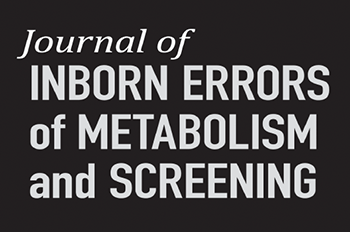| Hypotonia (reduced muscle tone) |
Patients have difficulty pulling themselves upright and sustaining postural control against gravity Forward displacement of the upper body that positions the body’s center of gravity outside its base of support |
Reduced trunk control Increasingly unable to stand, walk and sit upright without trunk support |
Walkers, standing devices, therapy chairs and other aids that provide postural support for the upper body and thereby offer mobility or allow the child to play, eat, etc. |
| Hypertonia (increased muscle tone) in the posterior leg, particularly in the calf muscle and supinators of the feet |
Tendency to equinus deformity, internal rotation/supination of the feet Compensatory changes for more stability in stance: knee hyperextension, backward pelvis tilt, exaggerated hip flexion, forward displacement of the upper torso (also see Figure 1) |
Inability to stand and walk upright without assistance |
Orthoses correct the misalignment, provide stability in the legs and enable weight bearing; if required, orthoses can be combined with walking and standing devices to provide trunk stability |
|
|
Worsening equinus deformity (lower- limb extensor hypertonia) requires increasing weight shifting to allow the patient to balance, which leads to further postural control deficits and functional impairments |
|
|
|
|
Backward displacement of the pelvis, which is often accompanied by a ventral pelvic tilt, leads to an overextension of the large gluteal muscles, making them difficult to activate; inactivity causes weakening |
Inability to stand and walk without assistance Independent transitional movements only possible in positions close to the ground |
Orthoses together with walking or standing devices allow the child to adopt an erect posture and enable activation of the gluteal musculature |
|
|
The backward displacement of the pelvis and slightly bent hip leads to a forward displacement of the upper trunk that prevents activation of the abdominal and anterior stabilising muscles; inactivity leads to muscle weakening |
Reduced trunk control Reduced head and neck control |
Corrected positioning (e.g. in a standing device) enables the use of the muscle groups and facilitates posture control |
|
|
The rounded shoulders render arm activities to the front and above shoulder height difficult and exhausting; declining use of arms causes further decline in muscle endurance |
Difficulty lifting arms and reaching |
A well-adapted therapy chair provides optimal positioning for independent head and neck control and for the child to play games with the hands/arms |
|
|
The forward curvature of the upper trunk causes a head-forward position; eye contact requires hyperextension of the neck; this strains the neck and jaw muscles; the mouth is frequently pulled open |
Impaired mouth closure, which impedes orofacial functions such as swallowing and speaking Difficulty directing eyes/gaze towards a visual target |
Therapy chairs or standing devices that allow the child to hold his/her head upright above the shoulder girdle; use of support points (e.g. the tray of a therapy chair or standing device) can help the child hold up his/her head |
| Dystonia, truncal incoordination |
Additional instability of the trunk intensifies the issues described above (e.g. goal-directed motion, gaze focus in space, walking and standing) |
Inability to walk, stand and sit independently |
Sitting, standing and walking is possible with much assistance; requires stability generating pressure points and support possibilities on the aids (e.g. a belt at the height of the sternum or lateral pieces in the rehabilitation buggy) |
| Myoclonus |
Myoclonic twitches and jerks primarily impede (a) directed motions (e.g. of the arms) and (b) calming of the child in the advanced stages of the disease; the sudden involuntary movements frequently appear to exhaust and frighten the children |
Inability to sit independently |
Assistive devices such as adaptive standing devices, rehabilitation buggies or materials for optimal positioning in bed that provide spatial delimitations can give the child an idea of his/her spatial position and thus a feeling of security. To prevent injury, it is essential to adjust the assistive aids appropriately |
| Opisthotonus (whole-body hyperextension with head, neck and spine arched backwards) with existing myoclonus |
Extreme muscle spasms can occur in the late stages of the disease. As a result, the child cannot independently find rest in any position; sleep is severely disturbed; saliva swallowing is impeded, which can frequently result in choking, which further distresses the child |
|
Assistive equipment (e.g. aids for optimal positioning in bed) must be chosen/adapted on a case-by-case basis to help reduce myoclonic activities. For discrete activities, the child can be placed in an upright position either supported by the parents or by a standing device |

 Thumbnail
Thumbnail
